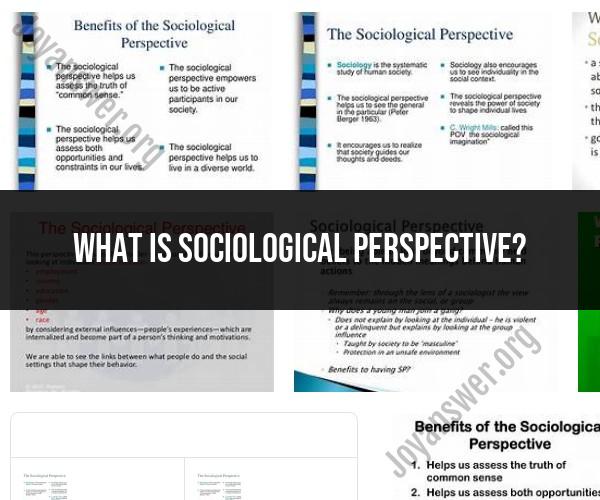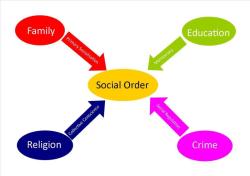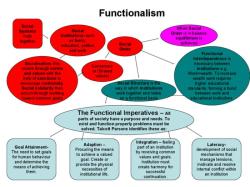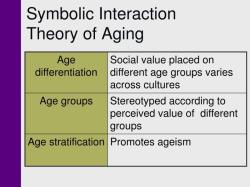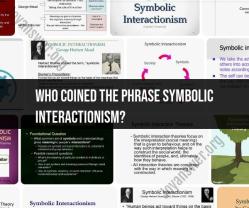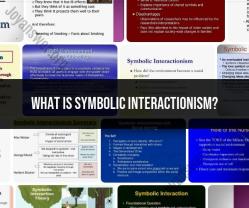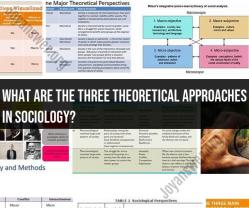What is sociological perspective?
The sociological perspective, also known as the sociological imagination or sociological viewpoint, is a way of looking at and understanding society, human behavior, and social phenomena through a particular lens or framework. It involves examining social patterns, structures, and institutions to gain insights into how they influence individuals, groups, and communities. This perspective is a central concept in sociology, a social science that studies human societies and their interactions.
Key components of the sociological perspective include:
Seeing the General in the Particular: Sociologists look beyond individual experiences and actions to identify broader social trends and patterns. They seek to understand how personal choices and behaviors are shaped by larger societal forces.
Questioning Assumptions: Sociologists question commonly held assumptions and challenge conventional wisdom. They encourage critical thinking and inquiry into the underlying causes of social phenomena.
Examining Social Context: The sociological perspective emphasizes the importance of considering the social context in which individuals and groups operate. Social context includes factors such as culture, institutions, norms, and power structures.
Understanding Social Structure: Sociologists analyze social structures, which are the organized patterns of relationships, roles, and institutions in society. They investigate how these structures influence behavior and shape individuals' life chances.
Recognizing Social Inequality: Sociologists are often concerned with issues of social inequality, including disparities in wealth, income, education, and opportunities. They explore how social structures and institutions contribute to these inequalities.
Applying Empirical Research: The sociological perspective relies on empirical research and data collection to support or refute hypotheses about social phenomena. Sociologists use various research methods, such as surveys, interviews, observations, and statistical analysis, to gather and analyze data.
Considering Historical and Comparative Perspectives: Sociologists often examine historical trends and make cross-cultural comparisons to gain a broader understanding of social phenomena. They study how societies have changed over time and how they differ from one another.
Exploring Micro and Macro Levels: The sociological perspective operates at both micro and macro levels. Microsociology focuses on small-scale interactions and individual behavior, while macrosociology examines large-scale social structures and societal trends.
Promoting Social Change: Many sociologists view their work as a means to promote positive social change. By understanding the root causes of social issues, they can contribute to policies and interventions aimed at addressing them.
Holistic Approach: The sociological perspective takes a holistic approach to studying society, considering the interconnectedness of various social elements and their impact on individuals and communities.
By adopting the sociological perspective, individuals can gain a deeper understanding of the social forces that shape their lives and the lives of others. It encourages empathy, critical thinking, and a broader awareness of the complex web of relationships that make up the social fabric of society. Sociologists use this perspective to address a wide range of social issues, from poverty and inequality to crime and education, with the goal of improving the human condition and fostering a more just and equitable society.
